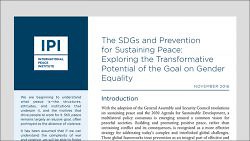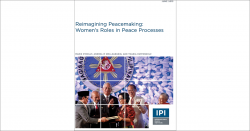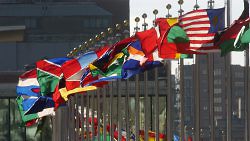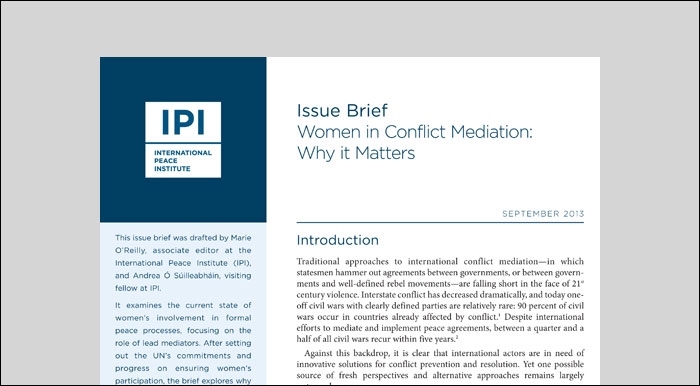
With the adoption of the General Assembly and Security Council resolutions on sustaining peace and the 2030 Agenda for Sustainable Development, a multilateral policy consensus is emerging around a common vision for peaceful societies. These global frameworks treat prevention as an integral part of effective and participatory governance and view peace as both an enabler […]
Read more













